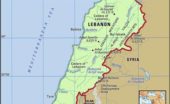Molly Minturn - My family is heartbroken to share that my father died in surgery on Monday, Feb. 10. It…
Wednesday Night #1582
Written by Diana Thebaud Nicholson // June 27, 2012 // Wednesday Nights // Comments Off on Wednesday Night #1582
Despite the global agenda, and perhaps because it was a more intimate and informal Wednesday Night than usual, discussion focused on a few issues that were of particular relevance to those present.
The Harper government
Now that Parliament is in recess (we love that word!) and politicians move about the country meeting with supporters, it is apparent that the Harper Conservatives are focused purely on questions of finance and the economy, while the Liberals are concerned with keeping their heads above water. Mr. Harper realizes that he has until 2015 (most do not see reelection in the cards) to change the face of Canada and he has set out to do so with a vengeance. The consequences will take years for any left-leaning government to undo in the future. Observers are reminded of the Mike Harris effect in Ontario. Some say that Stephen Harper is personable in private settings and appears to listen to opinions expressed, but a concern is that he does not appear to have a group of friends (political or personal) with whom he can consult and who will tell him unpleasant truths.
The Charest government and the protests
The demonstrations are not going to go away. While the nightly crowd numbers are not as great recently, we can expect major resurgences on the 22nd of each month. The big question is how this will affect forthcoming Quebec elections which could be as early as September 17 (which would coincide with the return of the Charbonneau Commission). Some suggest that Mr. Charest will wait until the first student is blocked from returning to classes and use such an incident to trigger the election call. Meantime, the first political ads are appearing – and with one, a legal case regarding the rights to the video of Mme Marois ineptly banging on a pot.
Social media
Guy Séguin, the man who originally shot the video and posted it on Facebook, has sent a legal letter to the Liberal Party asking them to stop using the clip. The likelihood of the videographer being able to claim royalties is regarded as slim, if as reported, the PQ had posted the video on YouTube. Once there, it would be in public domain.This raises the increasing unease about the activities of FaceBook and the fluidity with which pictures and content move from private to very public. Facebook is becoming more and more dictatorial vis à vis its users, as exemplified by the recent changes introduced without warning which is creating considerable backlash
Whale watching – an industry
The St Lawrence Estuary is teaming with marine life, including 5 varieties of whale, porpoises, dolphin, and seals. The phenomenon of whale watching as opposed to hunting is relatively recent, but has become a lucrative industry for the aboriginal population, many of whom have converted from hunting to operating zodiac tours throughout the summer months. There are also larger boats that offer less thrills, but more comfort for their passengers. In the late 1990s, the federal and Quebec governments set up the Saguenay-St Lawrence Marine Park, a unique jointly administered national marine conservation area and since then, tourism has become an important source of revenue. This is one of the most beautiful areas of Quebec and Charlevoix, long known as a summer residential area, has become renowned for wonderful local produce, excellent restaurants, summer music festivals and the UNESCO Biosphere Reserve that includes two parks: Hautes-Gorges-de-la-Rivière-Malbaie and Parc national des Grands-Jardins. Unfortunately, one of the casualties of all this progress has been the delightful naif art that was encouraged by the late Patrick Morgan and much favored by the summer residents in the mid-20th century.
The Prologue
Last week, we bemoaned the passage of the Omnibus Bill and (correctly) anticipated the disappointing outcomes of Rio+20
It doesn’t look as though we have a lot to cheer about this week, although the jury may still be out on the result of the Egyptian presidential election. Mohamed Morsy [we do hope that the media will come to some agreement on how to spell his name, we have seen Morsi (Al Jazeera), Mursi (BBC) and Morsy (Reuters)] may be so busy trying to overcome all of the problems the military have created for the presidency that the last thing on his mind will be imposition of Islamist policies. Monday’s PBS Newshour had a segment in which Jeffrey Brown spoke with Samer Shehata, assistant professor at the Center for Contemporary Arab Studies at Georgetown University, and Hisham Melhem, the Washington bureau chief of Al-Arabiya news. Neither painted a picture of a particularly dynamic Mr. Morsi (that’s the spelling PBS prefers), and both underlined the huge problems he is facing. As Hisham Melhem put it:
He’s presiding over a country that lacks a constitution, a dissolved parliament, an economic — a huge economic crisis — the country is almost on the verge of bankruptcy — and very divided country — and he has to deal with the unrealistic probably expectation of those who led the revolution early on, but those who also voted for him.
They want to see — to reap the economic and political fruits of the revolution. And they are impatient.
Reminds us of Bill Buckley’s reply when asked what he would do if elected Mayor of New York – demand a recount.
That would likely be our reaction if we were in the shoes of the successful candidate in the July 1st presidential elections in Mexico. If you have not been following the campaign, The Nation offers a good summary of who the candidates are and how deeply each is embroiled in the nation’s endemic corruption. The student movement YoSoy132 may play a decisive role in the outcome. As the article points out, unlike the Arab Spring, the Mexican protests are not directed against the sitting president but against a presidential candidate, Enrique Peña Nieto of the PRI. It’s complicated, but no wonder the Mexican people are disillusioned – the drug war has cost 60,000 lives over the past 5 years, the rule of law is non-existent, and there is a resurgence of the military and the Church, the traditional pillars of authoritarian politics.
Keeping on the topic of corruption and confusion, on the other side of the world, the tale of Pakistan’s prime ministers is suitably bizarre. Again, if you have not been following the turns and twists of who is in and who is out, the Economist’s Pakistan’s turbulent politics — First days of the Raja will bring you up to date. As best we can ascertain, the most recent choice is the third within a week, the previous nominee was arrested the day after he had been selected; the current one doesn’t sound like a prize package either. If the political goings-on are not sufficiently entertaining for you, do read the piece in Forbes over the corruption scandal involving the Pakistani production of Sesame Street – is nothing sacred?
Back to the Mediterranean — Further roiling the Middle East/Arab world is the Syria-Turkey confrontation over the downed Turkish jet that threatens to bring NATO into the fray. The situation in Syria continues to be fraught. [Update: Turkish PM warns Syria as NATO holds emergency talks]
Then there is Greece. Not only is the economy sick, so, it seems, are the politicians. Prime Minister Antonis Samaras has come through eye surgery, but has to recuperate for several days and cannot travel to the EU Summit. Meantime, the new Finance Minister has resigned for health reasons so Greece will be represented at the summit by the quasi-ceremonial president and the former minister of finance who technically still holds the title. And now Cyprus is asking for a bailout – just as it assumes the EU presidency next Sunday. In any event, business media report that the markets appear to have decided that little will come out of the meeting.
To continue recent discussions about the price of oil, Foreign Policy offers The Coming Oil Crash … “the world’s petro-rulers are watching the price of oil — their life blood — plunge at a rate they have not experienced since the dreaded year 2008. Industry analysts are using phrases such as “devastation” and “severe strain” to describe what is next for the petro-states should prices plummet as low as some fear. No one is as yet forecasting a fresh round of Arab Spring-like regime implosions. But that’s the nightmare scenario if you happen to run a petrocracy.”
Meanwhile, more fuel for the ongoing debate about the Tar Sands is offered by Robyn Allan who puts forward the argument that Canada’s energy strategy is not ‘made in Canada’ but
“is determined in the boardrooms of a handful of multinational corporations and by the governments of foreign countries through their national oil companies. The strategy is supported by the vast changes in the budget bill that was rushed through the parliamentary approval process by the Harper government.
The corporate plan consists of rapidly extracting oilsands heavy crude called bitumen, mixing it with diluent to allow it to flow through pipelines and exporting it as diluted bitumen (dilbit) to the U.S. gulf coast and Asia.”
In the U.S., this is the season of SCOTUS (Supreme Court of the U.S. to the acronym-challenged) decisions and the first three were delivered today. Despite the cogent explanations offered by The National Law Journal’s Marcia Coyle (she’s the wonderful PBS resident expert), we are still slightly bewildered by some of the reasoning and outraged by the continued support for campaign financing as decided in the Citizens United case.
We think we should probably stop here. If anyone has some cheery news, please send it along.



